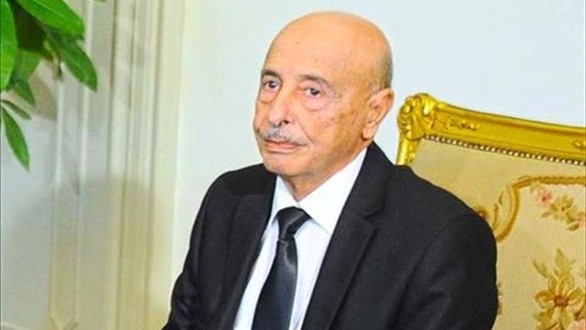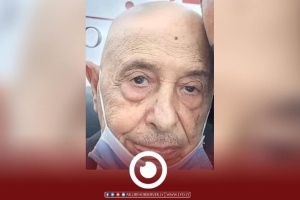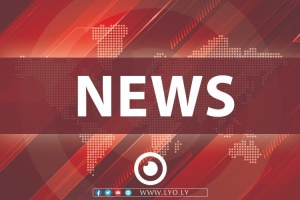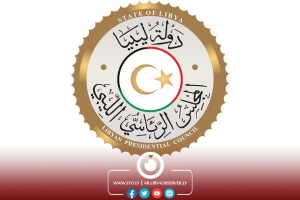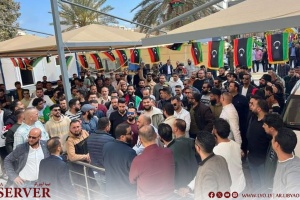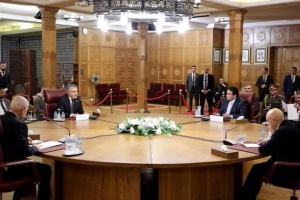The Speaker of the House of Representatives Aqilah Salah said that “the army”, a de facto group of armed militias led by warlord Khalifa Haftar, is the one authorized to announce how and when to start “liberating” the cities and towns in western Libya, after "liberating" Benghazi and Derna.
In an interview with the London-based Asharq Al-Awsat newspaper on Thursday, Salah expressed his confidence in what he called “the ability of the House of Representatives, the Interim Government and the army to complete their mission in the west and achieve further steps in the path of state unification and the elimination of armed groups and security chaos.”
He added that the government of Fayez Al-Sarraj in the capital Tripoli is illegal and fragile, insisting that Al-Sarraj does not have an actual army to declare himself as “the Supreme Commander of the Libyan Army.”
"Could Al-Sarraj explain the militia attack that took place last month on the oil crescent and export ports?" Salah asked.
"It is clear to us that the oil revenues go to armed terrorist groups, including purchasing modern weapons as tanks and armoured vehicles," he added, noting that “preliminary investigations prove the support of Tripoli government to such groups,” as he put it.
On his position on the Skhirat Agreement, Salah said that it took place between Libyan parties under the auspices of the United Nations and that he did not sign this agreement nor does he know the parties involved in it.
He added that "the so-called Presidential Council has no legitimacy in Libya since it came in accordance with the so-called political agreement,” pointing out that those who went to Skhirat were not authorized by the Libyan people to sign the agreement and were not from the legislative authorities in Libya.
"What happened is that Martin Kobler, the former UN envoy to Libya, gathered some 22 persons, who have no status and no mandate, and signed with them a political agreement," he explained, pointing out that the parliament did not give confidence to the government of Al-Sarraj and until now it has not been sworn in.
"In fact, it was rejected twice, however, surprisingly, the international community treated it as a legitimate body," he remarked.
Political analysts commented on Saleh's statements, saying that it proves that he is completely detached from reality and the interview was meant to be more of an emotional conversation to tickle his supporter's feelings regarding the liberation of the west region by the army and the illegality of the political agreement and so on, while the House of Representatives and its government have no legal force except the one imposed by Haftar's militias.
Observers criticized Saleh's questioning about the attack on oil ports as if Al-Sarraj was the one responsible, forgetting that the ports were under the control of Haftar and those who attacked the ports also set off from areas under the control of Haftar, while in fact the attackers themselves were former supporters of Haftar and Saleh, who were hailed as heroes by the easterners when they closed the oil ports in 2014.

